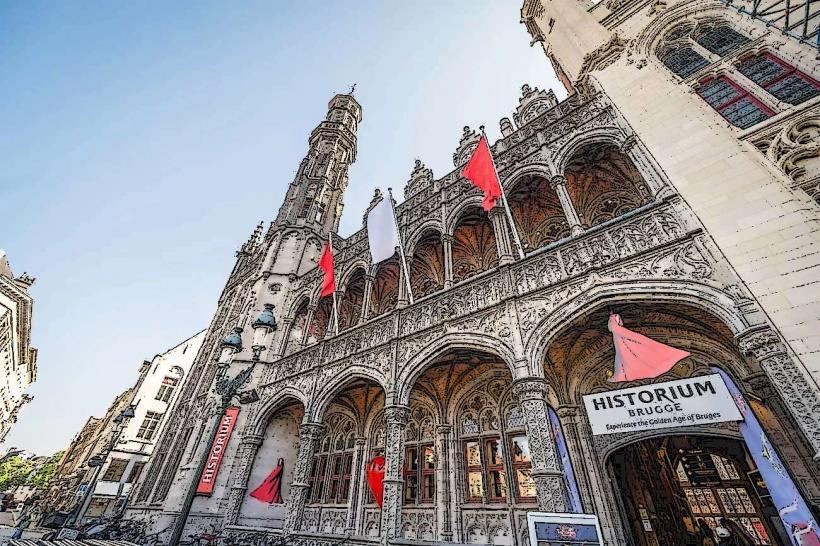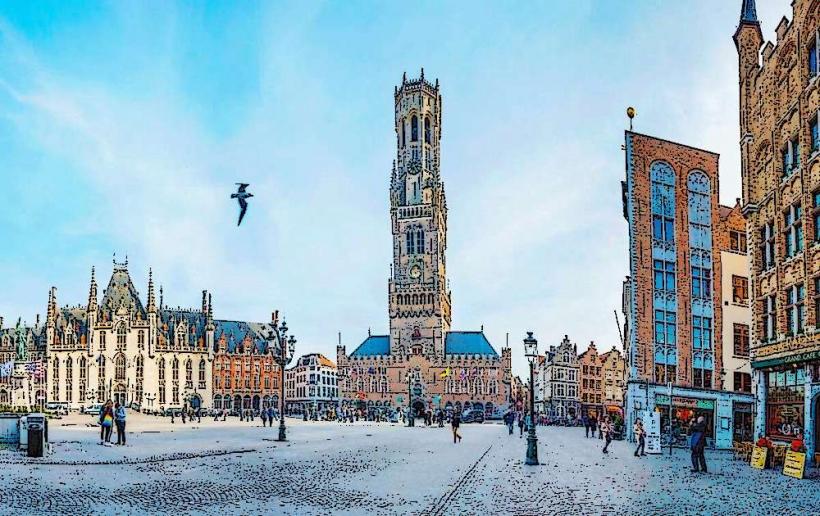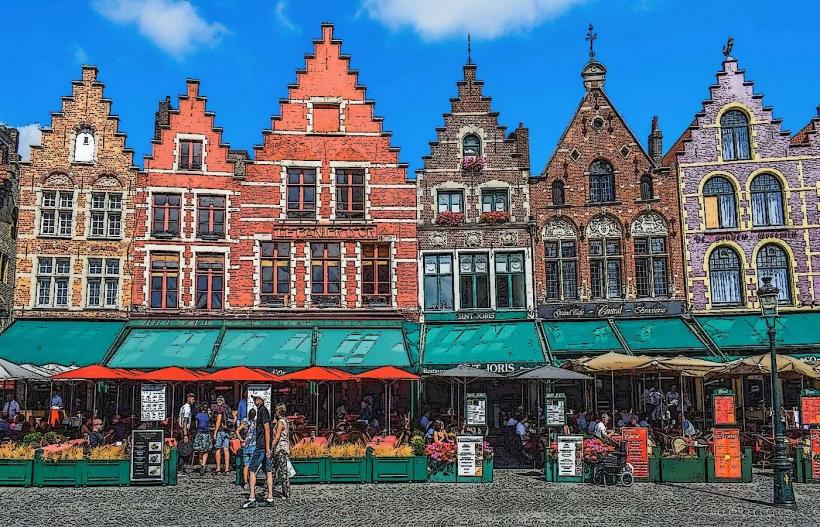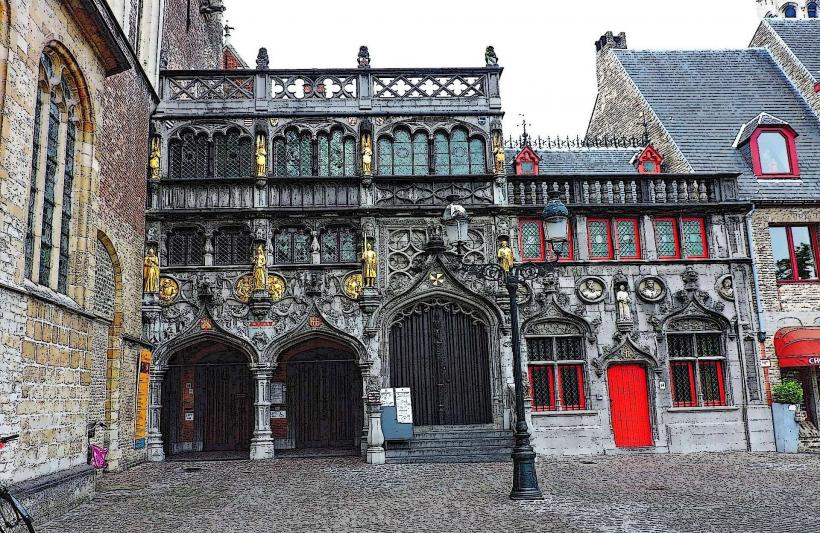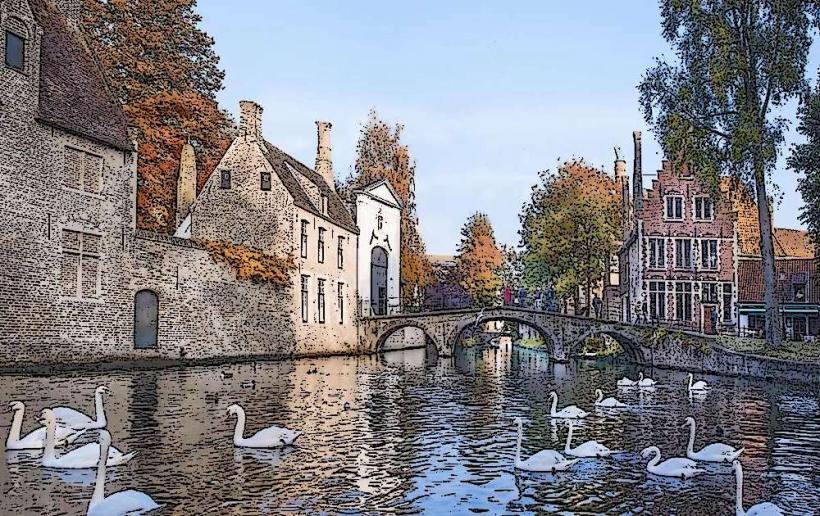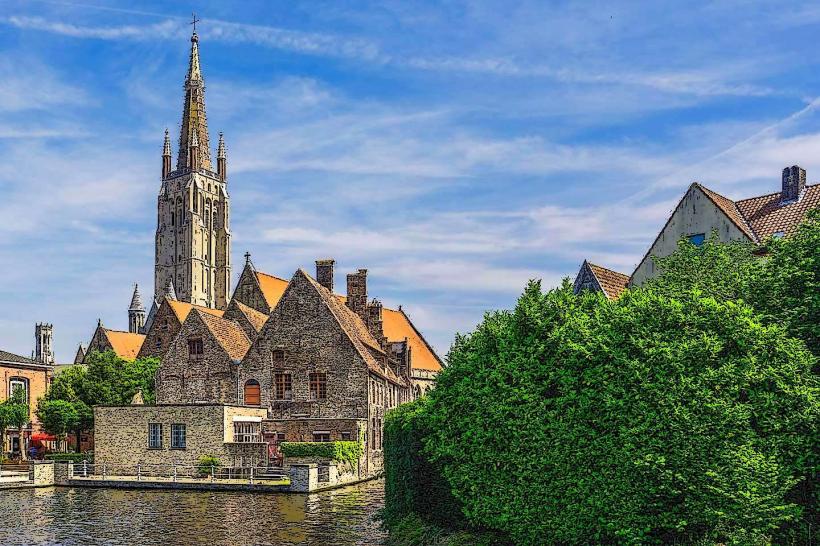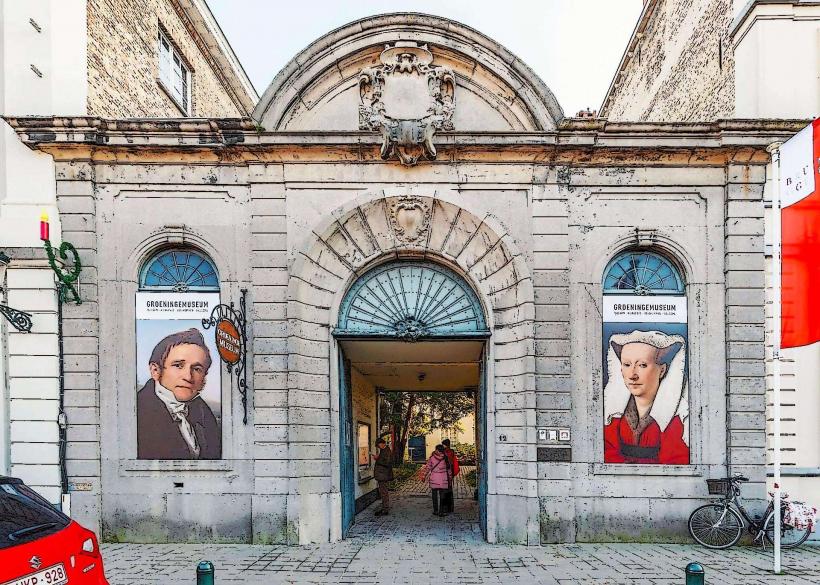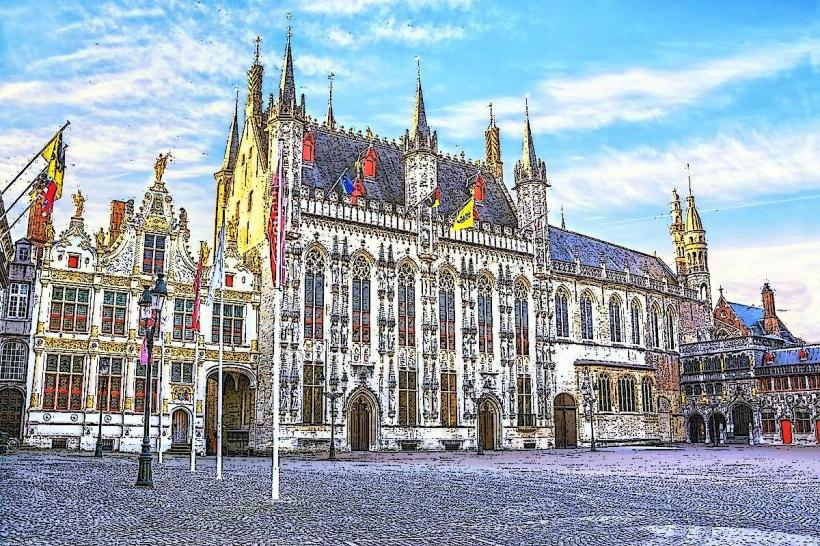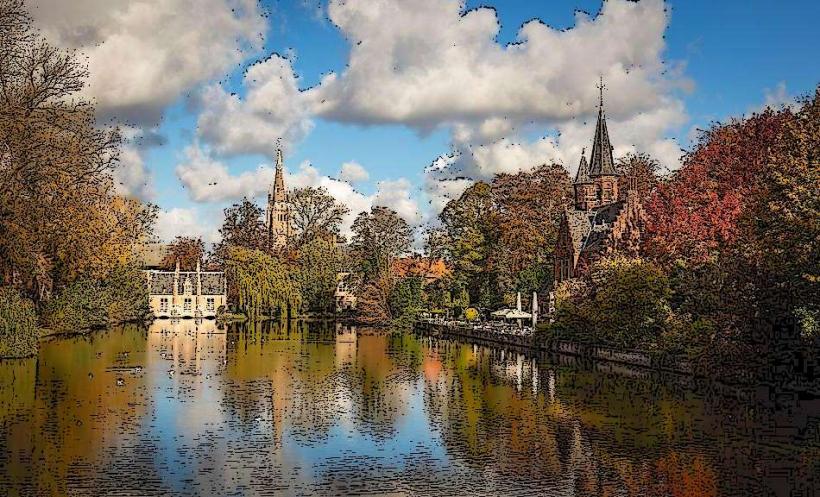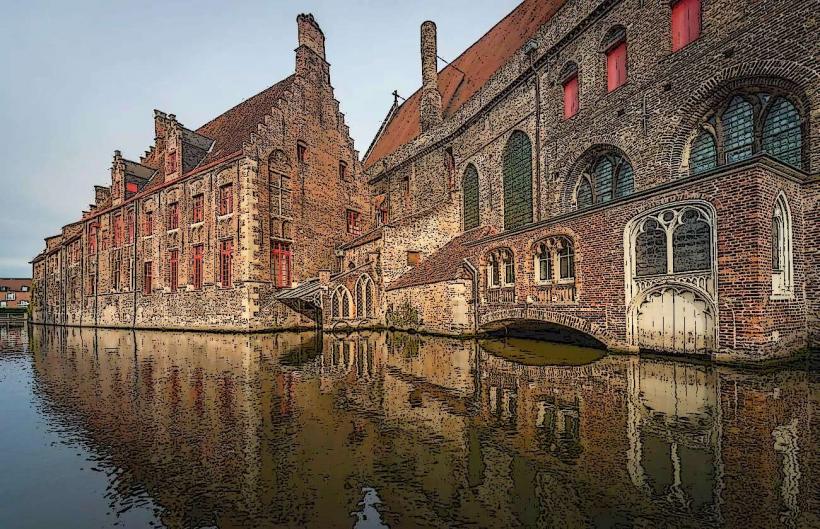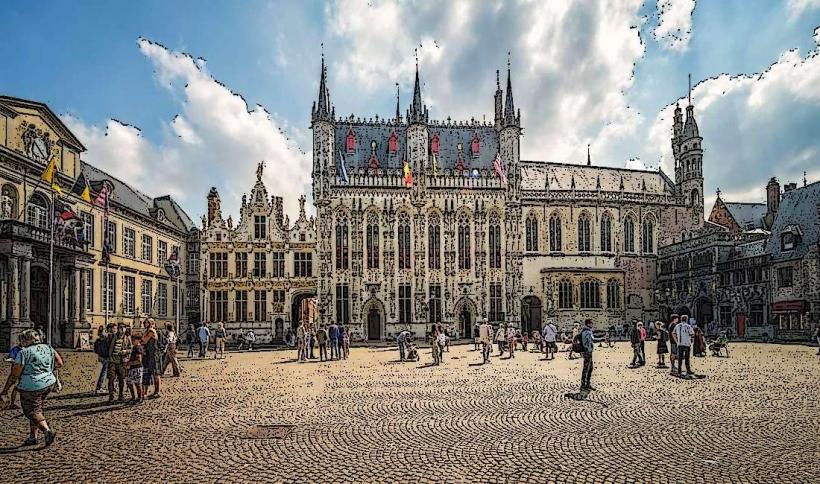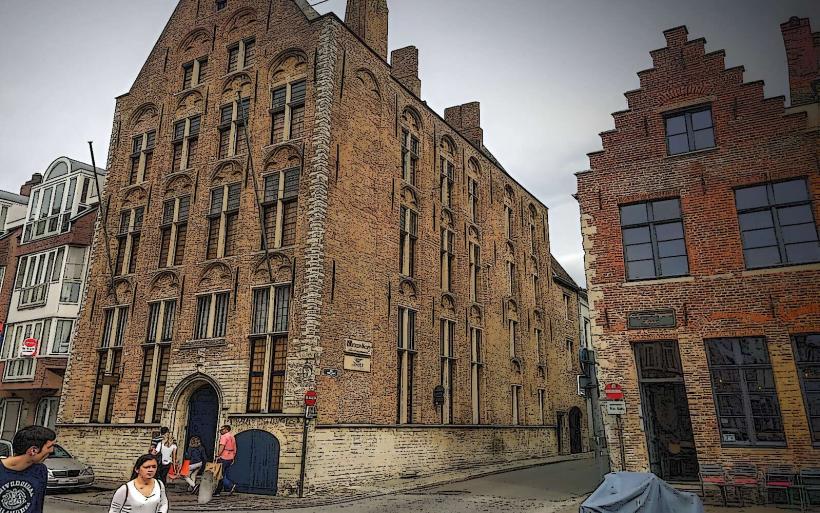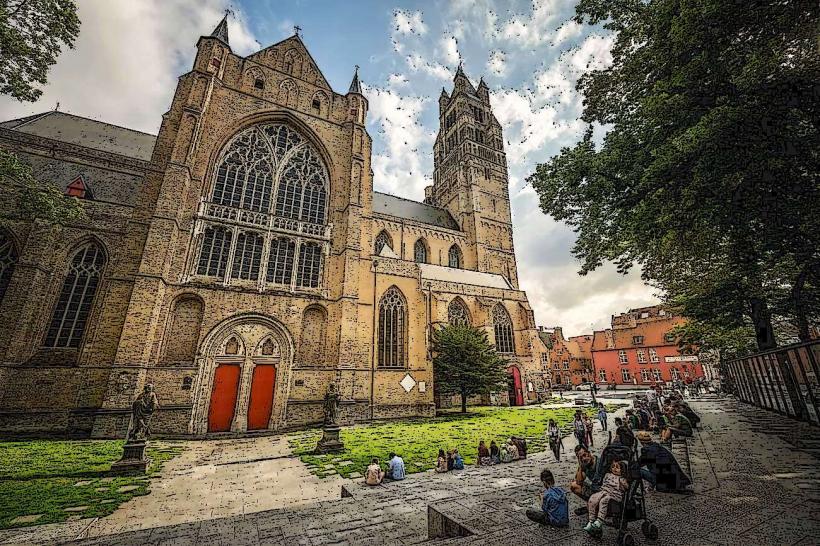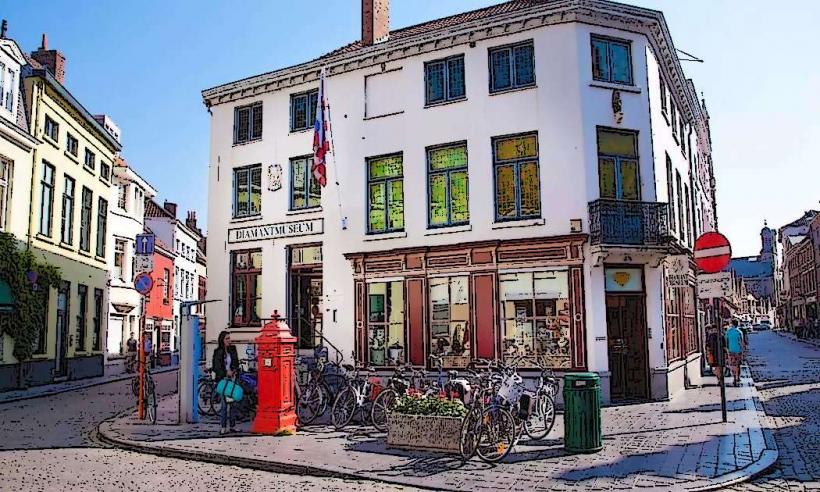Information
Landmark: Windmills of BrugesCity: Bruges
Country: Belgium
Continent: Europe
Windmills of Bruges, Bruges, Belgium, Europe
The Windmills of Bruges are a series of four historic mills situated on the Kruisvest, the city’s medieval earthen ramparts, in the northeastern district. They represent the last remains of the nearly 30 windmills that once occupied the city’s outer fortifications.
Visual Characteristics
The structures are traditional Flemish post mills and tower mills. The Sint-Janshuismolen and Koeleweimolen are dark wooden post mills mounted on stone bases, featuring rotating bodies to catch the wind. The Nieuwe Papegaai and De Bonne Chiere are similar in profile, characterized by large canvas-covered sails and a position elevated on the grassy embankments of the former city walls, overlooking the canal.
Location & Access Logistics
The mills are located along the Kruisvest, 8000 Brugge, spanning the section between the Dampoort and Kruispoort city gates.
Pedestrian Access: A 20-minute walk northeast from the Market Square.
Public Transport: Bus lines 1, 2, 4, 13, and 14 stop at "Brugge Kruispoort."
Parking: Limited street parking is available on the Kruisvest; the nearest large facility is Parking Alfapark (Langestraat).
Historical & Ecological Origin
Windmills have occupied these ramparts since the construction of the outer city walls in the late 13th century. Most of the current mills were relocated here from other Flemish locations in the 20th century to preserve the historic skyline. The Sint-Janshuismolen (1770) is the only mill still occupying its original site. The embankments serve as a green lung for the city, featuring mature trees and a sloped landscape that provides optimal wind exposure.
Key Highlights & Activities
Sint-Janshuismolen: The only mill open to the public that still grinds grain. Visitors can climb the steep interior wooden stairs to view the grinding mechanism.
Koeleweimolen: Houses a small museum regarding milling history and the relocation of the mills.
Rampart Walk: A 2km paved path along the canal, popular for jogging and panoramic photography of the city towers.
Infrastructure & Amenities
The mills are located in a residential park zone. Public benches are frequent along the Kruisvest. Restrooms are available only inside the Sint-Janshuismolen during operating hours. 5G signal is consistent throughout the open parkland. No commercial food services exist on the ramparts, but the nearby Langestraat and Dampoort areas contain numerous cafes and bakeries.
Best Time to Visit
The park is open 24 hours. The interiors of the Sint-Janshuismolen and Koeleweimolen are accessible from April to September, Tuesday through Sunday, 09:30 to 17:00. The best lighting for photography occurs in the late afternoon, as the sun sets behind the city's medieval towers, silhouetting the mills against the sky.
Facts & Legends
While primarily used for flour, these mills once functioned as communication devices; the position of the sails could signal news such as births, deaths, or warnings to the local population. A verified historical detail is that the "Nieuwe Papegaai" (New Parrot) is a replacement for an earlier mill that was used as an observation post during various sieges of the city.
Nearby Landmarks
Kruispoort (Medieval City Gate) – 0.1km South
Jerusalem Church – 0.5km West
Guido Gezelle Museum – 0.4km West
Dampoort – 0.6km North
Folklore Museum – 0.6km West

